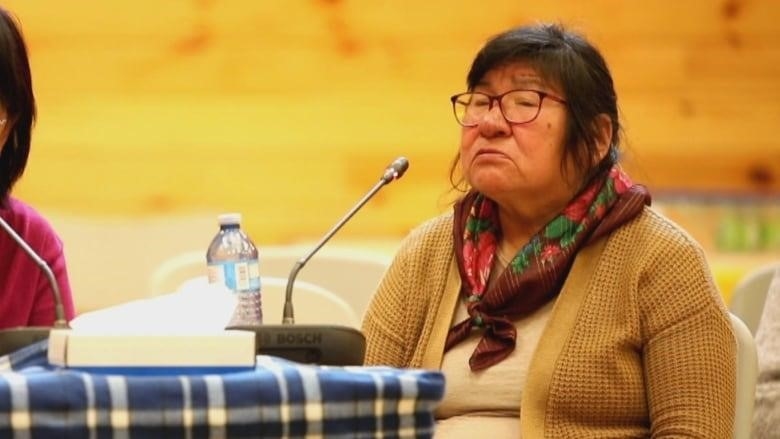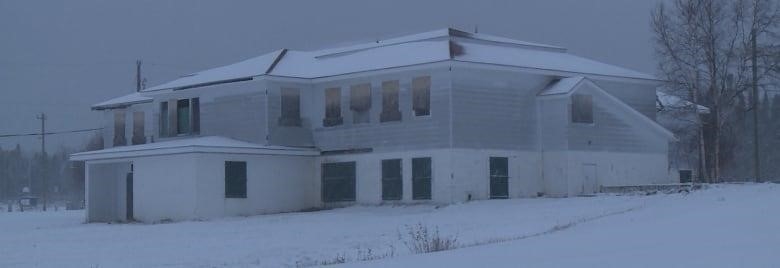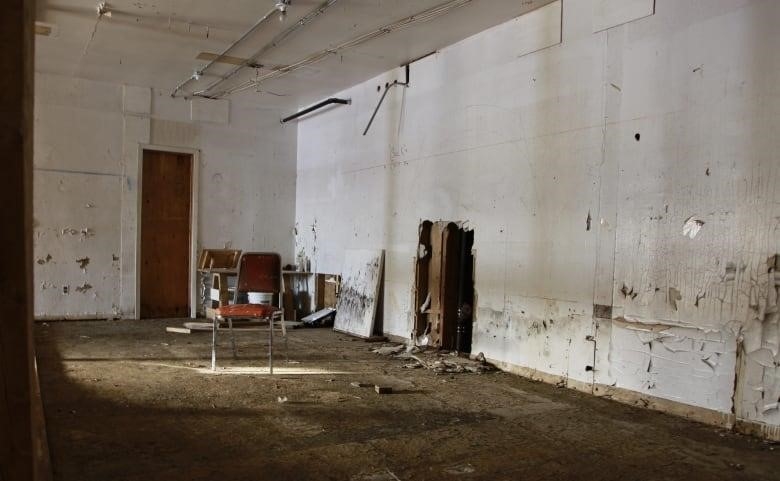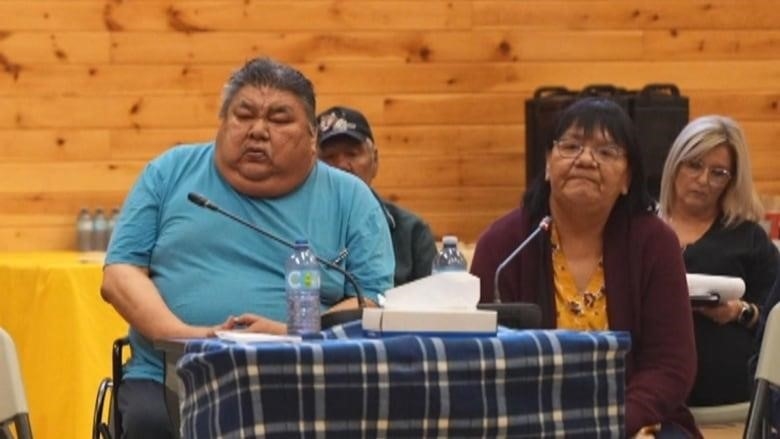
Commissioners are looking into problems with the system for protecting children
Warning: This story has parts that are sad.
As community meetings continue in the Sheshatshiu Innu First Nation, there are times when people get emotional and need to take a break or hug each other. This happens during the inquiry into how Innu children in care are treated.
In February, opening statements and testimony about the history of the Innu kicked off the inquiry into the treatment, experiences, and outcomes of the Innu in the child protection system.
James Igloliorte, Anastasia Qupee, and Mike Devine, the three commissioners of the inquiry, are looking into systemic problems with the child protection system and will make suggestions for how to fix them.
This week, any Innu who has used the child protection system or has an opinion about it is welcome to speak.
“I’m proud to be Indigenous. I’m proud to be Innu. My brown skin, that’s who I am. A damaged soul that once knew what pain was all about,” Joanna Michel told the commissioners on Tuesday.
Michel was born in 1964. She said her parents were alcoholics, and her father was abusive to her, her mother and her siblings. After missing school due to the abuse, two social workers came to Michel’s home in Sheshatshiu.
“They told me that ‘we’re gonna take you to a better place,’ Michel said.
Michel was taken to the North West River junior dormitory operated by the International Grenfell Association.

“I was eight years old and I began to experience emotional, physical, sexual, psychological abuse,” Michel said. “I didn’t understand. I was just a small kid.”
Michel said she couldn’t tell anyone because bad things would happen, and that she thought she was the only one being sexually abused.
She’s now learned she was one of many, and spoke of how she coped by listening to music and trying to stop the abuse from happening to her siblings.
Michel shared how her sisters tried to run away multiple times, but said the dormitory staff would phone the cable car that connected North West River and Sheshatshiu Innu First Nation so that workers wouldn’t let her on. Police would then catch and return them, she said.

“I didn’t wanna be there. I didn’t feel safe,” Michel said.
“One time there was open ice. [It] was in the springtime. We were running across, I was trying to get away…I know it wasn’t safe to run across cause it was open water. I was so desperate to get away. I didn’t wanna be hurt anymore.”
The workers called the Innu children dirty, rotten, no good and more, she said. When she left the dorm, Michel said she turned to drugs and alcohol to numb the pain, was in abusive relationships, hurt her own children, got into trouble with the law and was incarcerated.
She was considering suicide, she told the inquiry, until her sister took her in.
With help from family and treatment centres, Michel is now sober and a grandmother and great-grandmother. She started sharing her story in 2011 and helps out in treatment centres.
Michel hopes everyone, especially elected officials, listen to stories from the inquiry. She said monetary compensation for survivors isn’t enough, and changes need to happen.
“This is real. The pain is real,” Michel said. “The history of residential school needs to be told and I am so happy that I didn’t take my own life. I got to enjoy my family. I got to tell the story.”
Enough inquiries, time for change: Survivor 
Former Innu Nation grand chief David Nuke addressed the commissioners on Monday, calling on them to create a report that results in meaningful change.
“I’m a victim of the church. I’m also a victim of residential school. And also a victim of scoop of [the] 60s,” Nuke told the commissioners.

Nuke said the Innu are behind the Inuit of Labrador in creating a better future.
He said the Inuit have been empowered to have people trained as pilots, doctors, educators, lawyers, police and judges — pointing specifically to Igloliorte, a retired judge — adding the Innu don’t have the resources to do the same.
“That’s what the abuse done to my people,” Nuke said. “The system has failed the Innu.”
Nuke said he wants to see the federal government settle the Innu Nation’s land claim agreement and work with the Innu to have proper resources to train them for the future.
“We can train people to be wildlife officers, to be fisheries officers, to be police officers, to be pilots,” Nuke said. “That’s what reconciliation would mean to me…So James Igloliorte and Anastasia Qupee, please make this happen, please. Give us meaningful results.”
The community meetings are continuing until Friday afternoon at the Sheshatshiu Youth Centre.
The Inquiry website has some important phone numbers for anyone in Natuashish, Sheshatshiu or elsewhere in the Labrador-Grenfell Health region looking for healing and crisis help, and anyone in the province can call 811, any time, for mental health support.
Read more from CBC Newfoundland and Labrador
